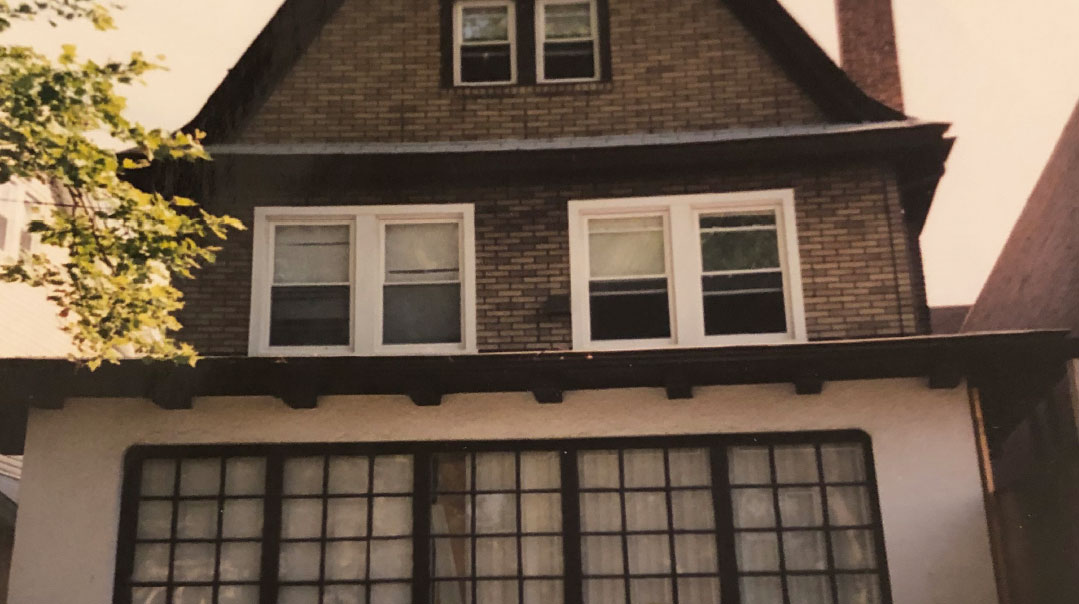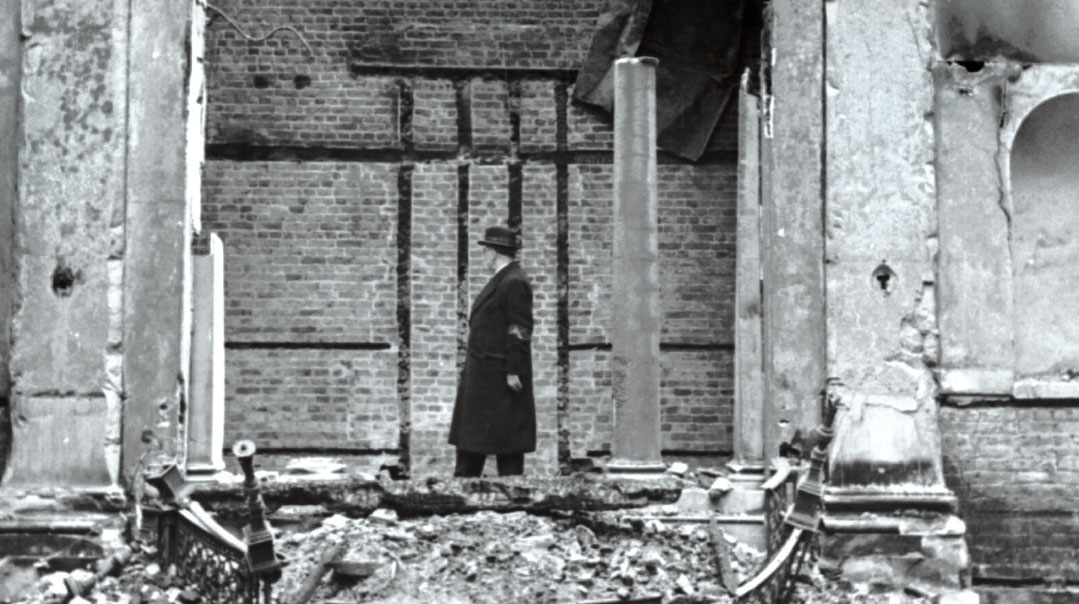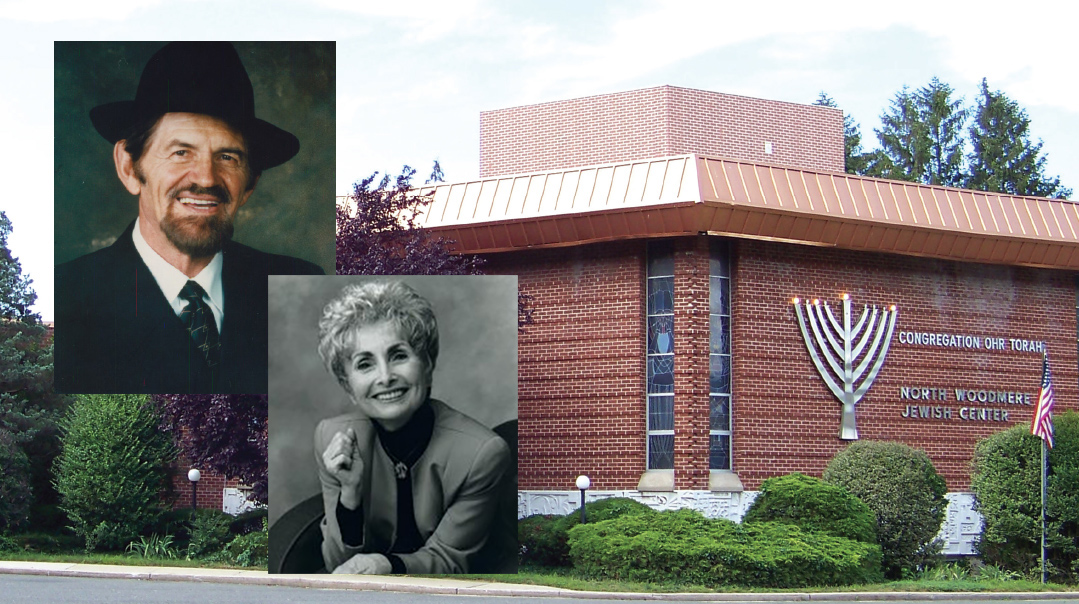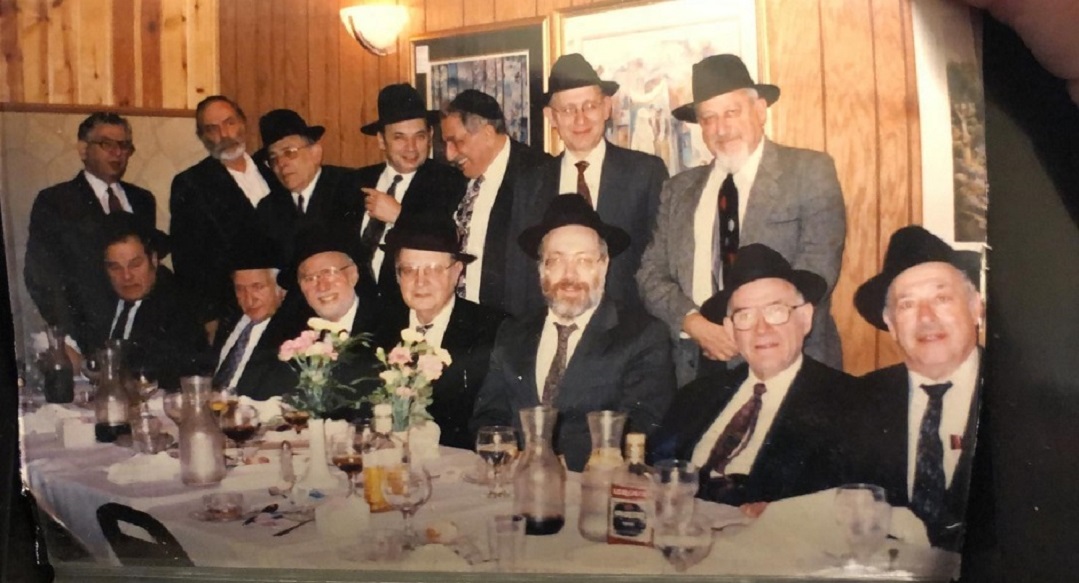The Sweetness Will Always Linger
| September 4, 2019The blessing of having learned what it really means to be a Yid is what makes the memories of that old shul count
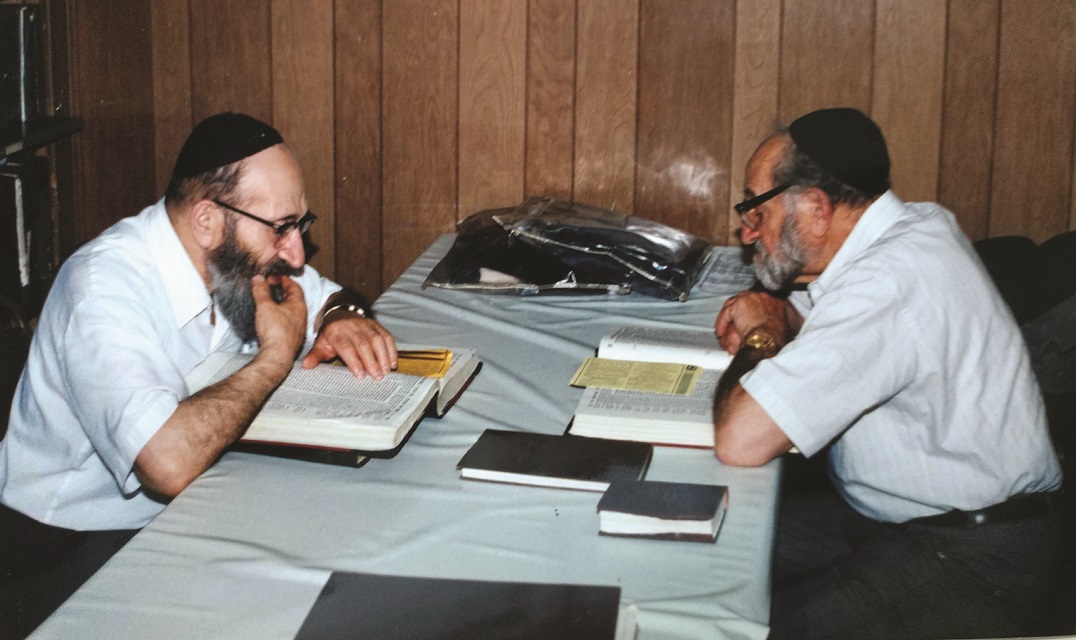
Mr Basch and Mr Jundef learning bechavrusa. (Photos: Library of Rabbi Shia Neuman)
Nowadays, the building is grand.
Imported Jerusalem stone adorns the exterior, the professional painters came through, and a magnificent aron kodesh has been installed. Before all that, Khal Yereim was a basic storefront in Cleveland Heights, divided in two by a rickety pink mechitzah swaying on rusted aluminum.
Simple — the way it used to be in the days when simplicity carried weight, conveyed soul. When simple was the most beautiful way to be.
Davening was long, but back then, no one ever seemed to notice. The endless Mi Shebeirachs and the occasional hosafah weren’t perceived as communal waterboarding, but rather offered a chance for a child to smile when he heard his name called out, for a member of the kehillah who perhaps felt unheeded to know he was valued. The time Mussaf ended wasn’t decided by the board — it merely depended on who had yahrtzeit that week.
In our out-of-town world, everything made sense. Our congregation was an amalgam of refugees from the Old World, alumni from Telshe, and those who had found Yiddishkeit later in life. The men were all equals, wealthy or struggling, heimish or yeshivish, baal teshuvah or FFB. It was a room that contained great friendship, much respect, and the leadership of a gifted rav, Rabbi Yehuda Blum shlita, who cared deeply. Simple, uncomplicated, genuine.
The kids had it good.
Summertime, the crumbling concrete blocks out front served as the courts to play the game we called Four Corners. As the nights turned dark and cold, we retreated inside to the old peeling tables for paper football and bottle-cap hockey with caps requisitioned from the half-finished RC bottles left out from Shalosh Seudos.
And the candy men. Them most of all.
Simple men. Great men.
Survivors. All of them. Or “fin der alter heim” if your father, like mine, came from Hungarian stock. We were taught to revere them, but there was never any fear. They loved us unconditionally, and we loved them back. We were a gift they could never take for granted; a promise fulfilled from a Father they never forsook even in the darkest pits of suffering.
When our rebbi told us that a tzaddik’s face shines, he didn’t have to explain. We knew Mr. Zelczer. The first order of business Shabbos morning was to recite birchos hashachar at his shtender. For our trouble, we received a Domino’s sugar cube, an “Umayn” of such purity, of such unbridled joy that I cannot possibly describe it — it warmed us till kiddush.
Mr. Lebovitz sat right next to him — a colossal man who handed out a colossal lollipop to a different kid each week. Somehow, he knew which of us had just gotten a bad mark on his Chumash test, was having trouble with a sibling, or simply needed a lift. I used to think he loved to tell jokes. I now understand that he knew no greater pleasure than watching children break out in laughter.
There was a tailor in our shul who seemed to have jumped right out of my book of stories about the shtetl. Mr. Kazen talked constantly of the nissim he had seen and of his brachah he received from the Chofetz Chaim. That brachah was alive to him, as real as the candies he cradled in his work-worn hands.
“I don’t remember what he told me,” he said. “But I have seen it at work every day of my life.”
On the way to the back corner, to Reb Shloime Abraham and his Jujus and Chuckles, we made sure we were smiling. He liked it when we smiled. After all, he had been through more than we could’ve ever imagined, and yet he never stopped smiling, never stopped being grateful. He was a quiet man who yearned not to be noticed, yet we instinctively heard the emunah thundering in his heart. A giant who walked with silent footsteps.
We understood real friendship because we saw the two electricians who sat side by side, Reb Mayer and Reb Chaim Yehida. Our version of Dovid and Yehonason. One day, we thought, we’d have a friend like that.
Reb Shulem sheyichyeh is a successful businessman who bought aliyos by the barrel. My father, the gabbai, knew the drill: “Distribute them to the people who need a turn.” If you were really young, a candy came for knowing the parshah, along with one for your sister at home. A little older and you had to know the daf — but if you bent over real close, it was whispered into your ear.
Our introduction to what it meant to be a masmid was Mr. Jundef. A small man seated behind a huge Gemara, often with the unforgettable butcher Mr. Basch as his chavrusa, Mr. Jundef did only one thing his entire life: He learned.
Reb Elya. Mr. Matitia. Reb Yisroel Bendet. Mr. Gottesman (Reb Alter Shimon Dovid, for my friends lucky enough to have been born five years before me).
And the women who stood beside them and loved us as much as they did.
There is no one on this earth who has had a greater impact on my life than my bobbie. It’s a book that needs one day to be written, a book to which the children of Khal Yereim can add chapters upon chapters — as I in turn can do for theirs.
Almost all of them are gone now. Zichron kulam livrachah.
The candies have long been devoured and their wrappers cast aside, but the sweetness in our mouths will always linger.
Each had his story and his distinct personality. Each carried his own pile of ashes from which he produced seeds and grew cedars. They were all so different from one another and to us they all meant the same thing — pashute Yidden — in the greatest sense of everything that term can encompass.
Nostalgia is a sweet exercise in and of itself, but the blessing of knowing what it really means to be a Yid is what gives these memories weight. We, the children of Khal Yereim, merited people such as these in our lives — people for whom HaKadosh Baruch Hu was real, people who fully grasped that a shul was where He truly made His home.
They taught us the infinite treasure of a Yiddishe kind. They waited for the day we would stand on our own and forge the next links on the golden chain of mesorah they had fought with blood and tears to preserve and extend.
One of the men mentioned here was wont to tease us affectionately with the age-old expression, “Children are meant to be seen and not heard.” It never bothered us the way it did when it came from others. Because we knew.
We knew he understood what it means to a child to be seen.
(Originally featured in Mishpacha, Issue 776)
Oops! We could not locate your form.

